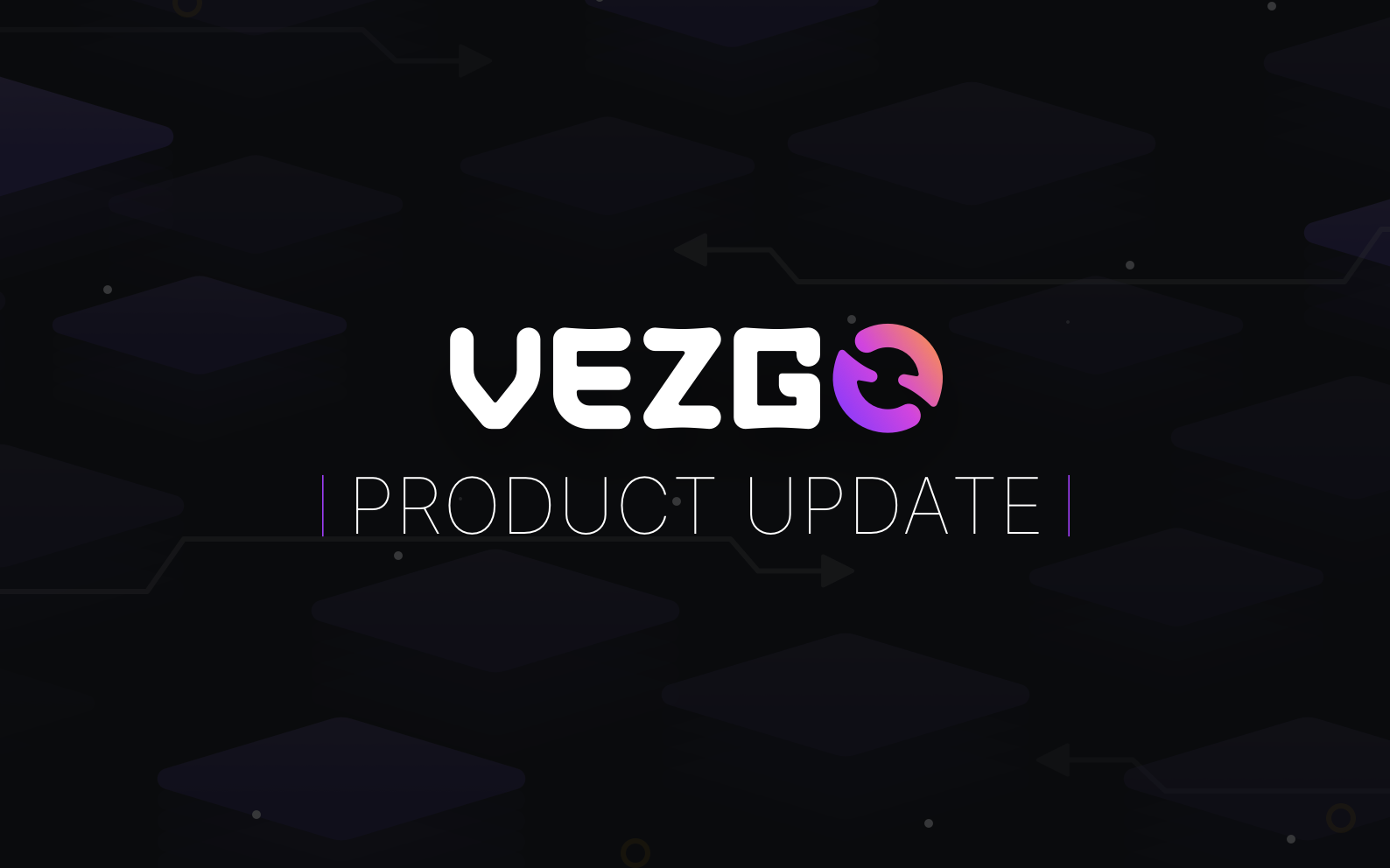
It is the norm for crypto investors to have several tokens in their portfolio in a bid to diversify. As a result, most investors have their digital assets spread out across multiple exchange platforms and wallets.
But while portfolio diversification is a bright idea, it does expose crypto investors to one big problem:
How does one effectively manage and keep track of these assets?
Cryptocurrency investors spend almost as much time poring through crypto price graphs and market data as they juggle their portfolios. So, you are not alone if you have thought of ways to consolidate and manage your assets using one tool.
Fortunately, we have something for you. In this piece, you’ll learn all about crypto wallets and how to manage multiple crypto wallets using Vezgo’s unique crypto API.
But first, let’s get the basics right.
What is a Cryptocurrency Wallet?

As the name implies, a cryptocurrency wallet is a tool for keeping crypto tokens safe. That’s a layman’s (and our favorite) definition, though—it’s straightforward and cuts to the heart of the matter.
However, as an investor, a layman’s definition will hardly suffice. You should understand the technicalities that make it different from a physical wallet, such as one that stores banknotes and small credit cards.
A cryptocurrency wallet does not really hold any tokens. However, it still functions very much like a bank account. It does not “host” the tokens but provides access to them as well as the identification required to receive funds from other wallets.
The Two Master Keys of A Crypto Wallet
The two main components of a cryptocurrency wallet are its encryption keys, which are of two kinds; private and public keys.
Public keys are used to verify ownership of a cryptocurrency wallet. An important public key derivative is wallet addresses, which effectively perform the same function as a bank account number.
On the other hand, a private key is specially generated and programmed to be kept secret. This code gives you direct access to the blockchain tokens you own. With it, you can sign off transactions on the blockchain and send tokens to other wallets.
Thus, private keys must be kept safe and secret at all times. Without it, it’s impossible to access your funds. Also, your crypto wallet hosts your private keys.
One popular format is to write out your private encryption keys on paper and store them somewhere safe. This method is efficient but hardly reliable, as any loss or damage to the paper will result in a permanent loss of funds.
The Types of Cryptocurrency Wallets
There are three main kinds of cryptocurrency wallets:
- Soft Wallets
Also known as hot wallets, these cryptocurrency wallets work via an internet connection. They’re a range of tools such as web apps, mobile apps, and desktop apps.
These wallets are pretty convenient, as it doesn’t take much to access them. All you need is an internet connection. You can link them seamlessly with various exchange platforms to conduct trades, and the user experience is often a bonus.
The most known hot wallets are MetaMask, Trust Wallet, Atomic Wallet, Exodus, XUMM, and Coinbase Wallet (the wallet, not the centralized exchange!).
However, software wallets are unreliable for the very reason that they are convenient. As they’re accessible over the internet and are basically apps, your tokens’ security relies on the app’s stability and the strength of its developers’ technologies.
This leaves soft wallets at a higher risk of hacks, and your funds may not necessarily be 100% safe here.
- Hard wallets
Otherwise known as hardware or cold wallets, this is a form of storing your cryptocurrency in non-internet-reliant mechanisms.
Alternatively, hardware wallets are popular in the form of hard drive-like devices that work without the internet. The most popular devices are from brands such as Trezor, Ledger, and Ellipal. You’ll only have it online when you connect it to an exchange platform to move funds. After that, you can disconnect it safely.
Hardware wallets may not be as convenient as software wallets, but they’re certainly safer.
You may be wondering what happens if your lose your cold wallet. Check out this article from Ledger to learn more: Can’t access your Ledger devi
Custodial or non-custodial wallets
Custodial wallet services host your private keys and are charged with keeping them secure. Whenever you want to perform a transaction, you must log in to the platform and enter the public key or wallet address where you intend to transfer the funds. Such players are known as centralized exchanges like Binance, Coinbase, and Gemini.
On the other hand, non-custodial wallets are not responsible for keeping your keys safe. This option has its benefits, as it ensures that user assets aren’t subject to confiscation or censorship. These are the soft and hard wallets we just talked about.
Diversification and Cryptocurrency Wallets: A Keen relationship
Any serious investor knows how important it is to hold assets in various tokens. Even stock investors understand this golden rule of investment.
Even if you own BTC, arguably the king of cryptocurrency, it doesn’t hurt to have some ETH, XRP, SOL, or ALGO spread out across various wallets.
Managing multiple crypto wallets is essentially diversifying your crypto portfolio. By diversifying your cryptocurrency wallet, you decrease the overall risk factor.
Woe betides the cryptocurrency investor that holds only one type of cryptocurrency! They may be inconsolable in the potential event of a market crash, such as the one that saw many tears shed in early 2022. In fact, it’s detrimental to mental health! It simply isn’t wise to have an undiversified wallet, especially considering cryptocurrency’s inherent volatility.
Diversifying your crypto portfolio is a sure way to make gains, no matter which trajectory to which the market is tilting.
For instance, if one token tanks, another token pumping can offset the loss. If your portfolio is highly diverse (utility tokens, meme coins, Metaverse-based tokens, etc.), you’ll be able to make more gains and limit your losses with your assets spread out as they are.
It also provides you with a form of security. In the unfortunate event that one wallet is hacked, you won’t suffer a wholesale loss to your portfolio.
How to Manage Multiple Crypto Wallets (and more) With Vezgo

Unfortunately, cryptocurrency wallets aren’t one-size-fits-all tools. They’re peculiar to the token or tokens they’re designed to hold. Scant few wallets can hold multiple crypto tokens, hence the unavoidable eventuality of having to manage multiple crypto wallets.
It can be difficult to juggle and track many platforms, leaving traders needing a uniform solution to manage digital assets.
This is where the Vezgo API comes in. With it, developers can build applications that help users say goodbye to all the hassle and confusion of managing several crypto wallets.
What is the Vezgo API?
Vezgo crypto wallet API is an all-in-one tool that allows app developers to develop innovative solutions based on important crypto portfolio data, such as transactions and account holdings data.
How does it manage to do this?
Here are some of its juicy features that intersect with managing your cryptocurrency wallets:
- Versatile data aggregator
Essentially, Vezgo API allows app developers to integrate with various blockchains, wallets, and exchanges to extract and aggregate crypto portfolio data.
As a developer, Vezgo is your best bet at optimizing your software tool and making things easy for your crypto trader customers and clients, giving them easy access to data and providing convenience, all in one go. Vezgo provides a single API for you to aggregate and access investors’ trade histories, asset balances, and tokens.
No matter the type of wallet you have, Vezgo has got you covered.
DeFi assets? Check.
NFTs? No problem.
- Ease of use
Vezgo saves you time building your app solutions for cryptocurrency. If you’re looking to integrate protocols, wallets, and exchanges into your project, Vezgo’s easy-to-use and intuitive crypto wallet API gives you everything you need to build in just a few hours. Check out the API Documentation here.
- Regular updates
Also, you needn’t worry about outdated software, as Vezgo’s hardworking technical team ensures that all integrated wallets are aptly updated to the latest versions. We also integrate the newest exchanges and blockchains. See the coverage of over 35 exchanges and 21 blockchains here.
Can You Hold All of Your Tokens in a Single Crypto Wallet?
As previously emphasized, you’d be hard-pressed to find a wallet solution that accommodates several cryptocurrencies. At best, you’d find wallets with support for two or three cryptocurrencies. However, as a cryptocurrency investor, you should be looking to invest in more than three tokens.
Each blockchain is unique, as are the crypto tokens native to each. If you send BTC to an Ethereum-based wallet, you lose the Bitcoins forever. Hence, managing multiple cryptocurrency wallets is common. Rather, it’s necessary, especially if you have a diverse portfolio.
But thanks to the Vezgo API, there are now many solutions that can help you aggregate your portfolio across various wallets.
And if you’re an app developer, you can get your Vezgo API key today to help you manage multiple cryptocurrencies from a single dashboard.





Leave a Reply